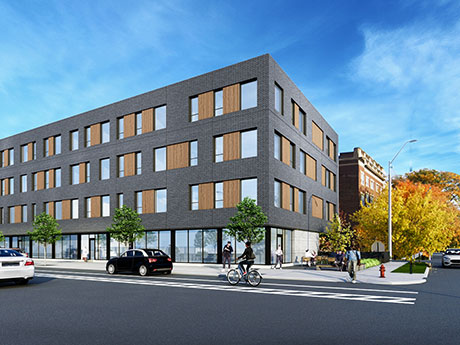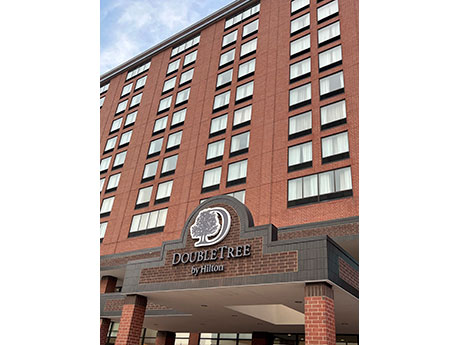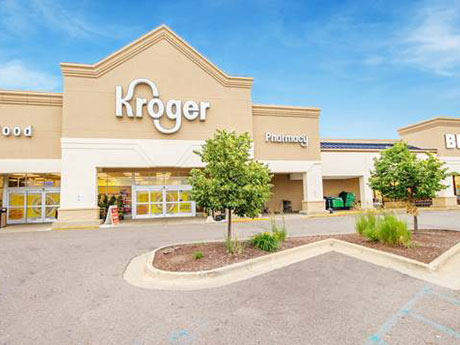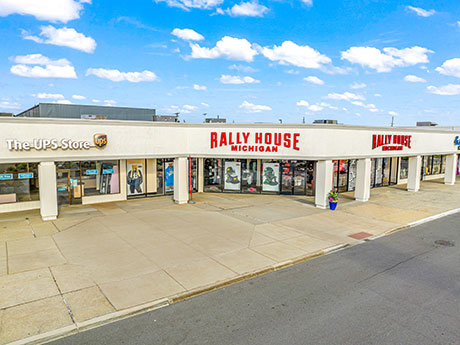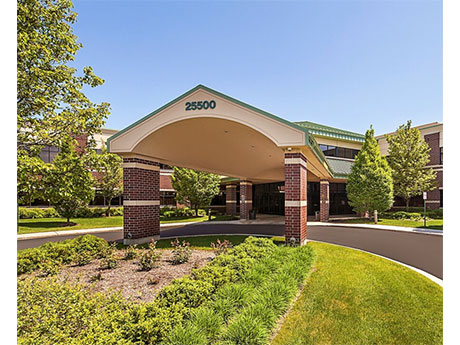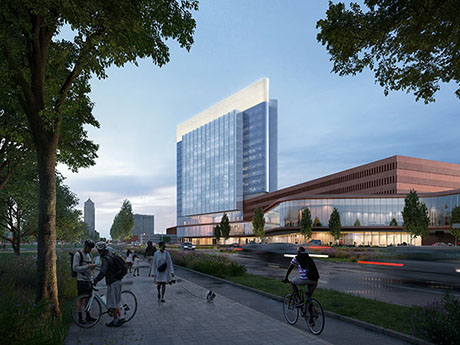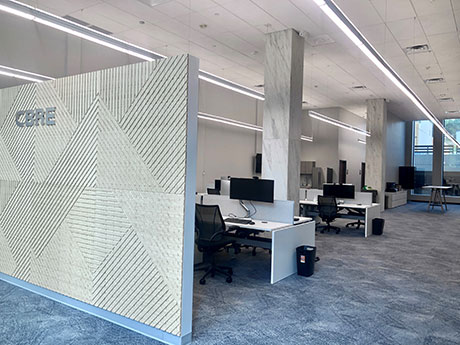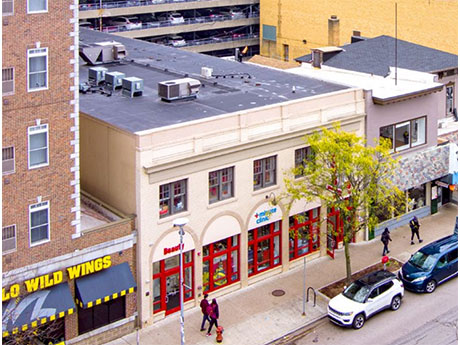DETROIT — Cresa has acquired Axiom Advisory Group, a Detroit-based, tenant-focused commercial real estate firm specializing in global corporate real estate portfolio management. Axiom, which also has team members in Chicago and Dallas, is led by Ryan Bertin and Curt Stanton. The duo will serve as managing principals and co-leaders of Cresa’s Detroit operations. The company’s entire eight-person staff joins Cresa and will operate under the Cresa brand effective immediately. Since it was founded in 2017, Axiom has completed more than 450 assignments, representing 16 million square feet across 28 countries for various publicly traded and privately held corporations. The acquisition formally ends Cresa’s longtime partnership with Plante Moran in Detroit.
Michigan
DETROIT — Greatwater Opportunity Capital has unveiled plans to develop a $14 million affordable housing community in Midtown Detroit. The project marks Greatwater’s first-ever new-construction development. For the past 10 years, the firm has been renovating buildings in Detroit to restore housing and preserve affordability. The new development will be located at 3740 2nd Ave. and will feature 33 studios and 24 one-bedroom units along with first-floor commercial space and secure parking. Through the city’s NEZ property tax abatement, 20 percent of the units will be designated for residents earning up to 80 percent of the area median income. Completion is slated for spring 2025. Greatwater leveraged Opportunity Zone funds and financing from Diversified Members Credit Union for the project. McIntosh Poris is the architect, and the Monahan Co. is the general contractor.
EAST CHINA, MICH. — Marcus & Millichap has arranged the $2.8 million sale of a 12,174-square-foot property occupied by DaVita Dialysis and Saint Clair Nephrology in East China, a city in eastern Michigan along the border of Canada. The net-leased building is located at 4180 S. Hospital Drive across from Ascension River District Hospital and St. John Providence Health System. Both tenants have occupied the property since its construction in 2015. Austin Weisenbeck, Sean Sharko and Daniel Chumbley of Marcus & Millichap represented the buyer, a limited liability company.
LANSING, MICH. — Waramaug Hospitality has opened the DoubleTree by Hilton Lansing, a 256-room hotel in Lansing. Waramaug acquired the property in 2021 and decided to rebrand it and renovate all guestrooms and corridors, the lobby, Made Market, restaurants and bar, meeting rooms and pre-function spaces. The hotel also features a fitness center and two-story indoor pool. The second floor of the property connects to the Lansing Center, the city-owned 125,000-square-foot convention center. The property marks the eighth within Waramaug’s portfolio that is under the Hilton umbrella.
JACKSON, MICH. — Marcus & Millichap has brokered the $8 million sale of a grocery-anchored retail center in Jackson, located about midway between Kalamazoo and Ann Arbor. Kroger and Big Lots are the anchor tenants. Ashish Vakhariya, Seth Haron and Darin Gross of Marcus & Millichap represented the all-cash buyer and seller. Additional terms of the transaction were not provided.
TROY, MICH. — Continental Realty Corp. (CRC) has signed leases totaling nearly 35,000 square feet with five retail tenants at Oakland Plaza in Troy. The 172,000-square-foot shopping center is now 97 percent occupied. CRC acquired the asset in 2021 when it was 68 percent leased. The most recent leases are with Kid’s Empire (14,579 square feet), Rally House (9,000 square feet), Meat Up BBQ (4,646 square feet), Paris Banh Mi (3,600 square feet) and Mochinut (2,571 square feet). Daniel Stern, Eric Unatin, Jared Gell and Eric Birnholtz of Mid-America Real Estate represented the landlord in all five leases.
NOVI, MICH. — Dr. Kuzdak, who will operate his practice under the name Gem Health & Wellness, has signed a 10-year lease for 1,781 square feet at Meadowbrook Medical Center in Novi. The tenant is a family physician and primary care doctor. Eric Banks and James Mitchell of Dominion Real Estate Advisors LLC represented the tenant and the undisclosed landlord.
Joint Venture Plans $439M Inpatient Rehabilitation Hospital, Research Facility in Detroit
by Katie Sloan
DETROIT — The Gilbert Family Foundation, Henry Ford Health and Shirley Ryan AbilityLab have announced plans for the development of a $439 million inpatient rehabilitation hospital and research facility in Detroit. The project will be an expansion of the existing Henry Ford Health and Michigan State University Health Sciences campus. Plans for the project include a 125,000-square-foot inpatient tower, which will be constructed at the corner of West Grand Boulevard and John C. Lodge Freeway. The facility will offer 72 beds, with three floors of the building occupied by rehabilitation care provider Shirley Ryan AbilityLab. The rehabilitation floors will provide inpatient care for those recovering from strokes, traumatic brain injuries, spinal cord injuries and other conditions. The Gilbert Family Foundation has provided $10 million fund to increase access to rehabilitation care for low-income residents in Detroit. The building is scheduled for completion in 2029. The development will also include a new research building on Henry Ford Health’s East Campus. The project will house the Nick Gilbert Neurofibromatosis Research Institute, a facility dedicated to finding a cure for neurofibromatosis. The property is scheduled for completion in 2027. The building will be the first brick-and-mortar development to be solely dedicated to neurofibromatosis …
GRAND RAPIDS, MICH. — CBRE has relocated its Grand Rapids office from 634 Front Ave. to 200 Ottawa Ave. The brokerage has expanded its footprint from 1,444 square feet to 4,350 square feet. The new space in the central business district features conference rooms and free-address seating — where no employee has a dedicated desk or private office.
ANN ARBOR, MICH. — SRS Real Estate Partners has brokered the sale of a 13,040-square-foot retail property occupied by CVS Pharmacy in Ann Arbor for $7.8 million. Originally constructed in 1930, the building is located at 209 S. State St. adjacent to the University of Michigan. John Redfield of SRS represented the seller, a northern California-based private investor. Michael Carter and Frank Rogers of SRS represented the buyer, a Michigan-based investment company completing a 1031 exchange. CVS has more than 14 years remaining on its triple net lease.


